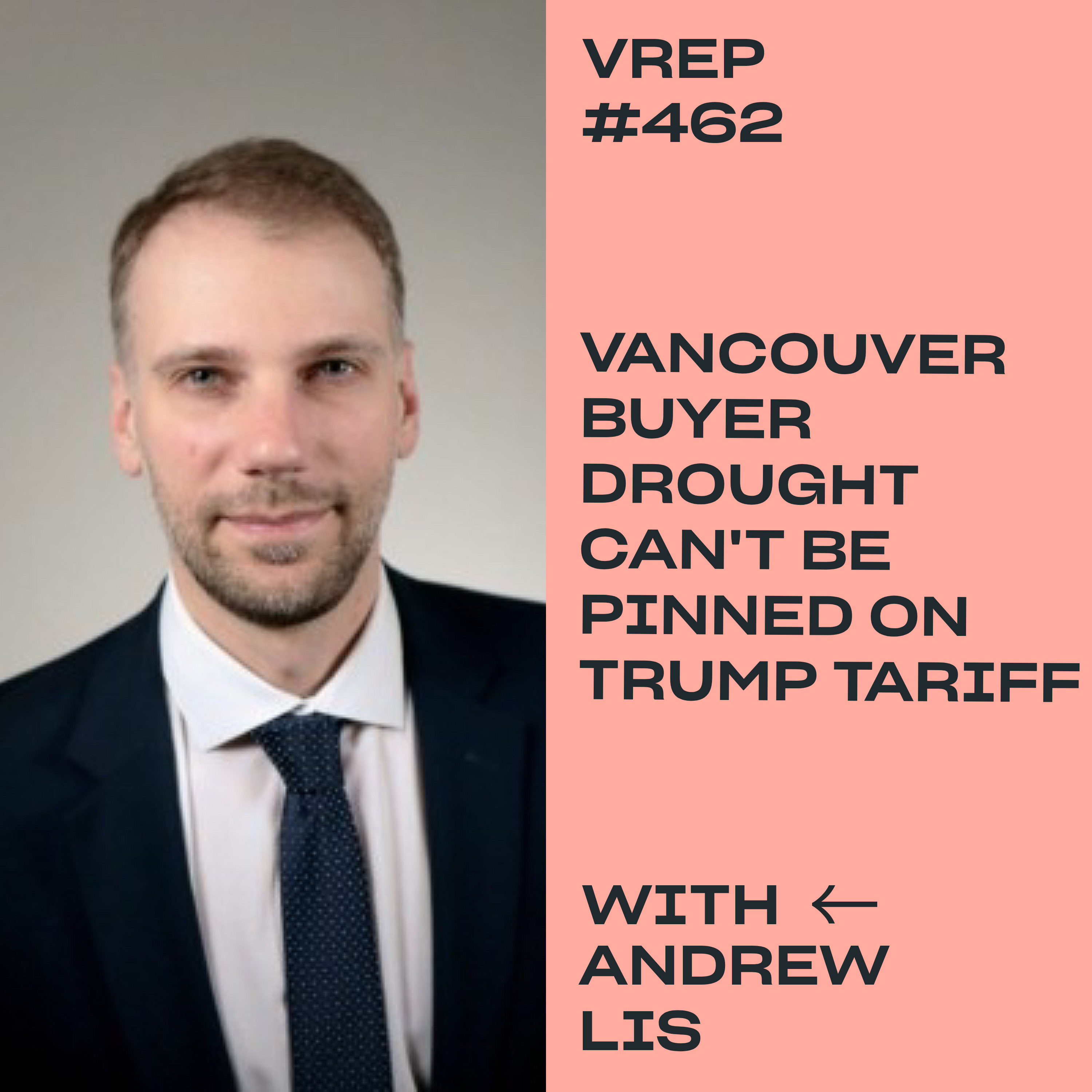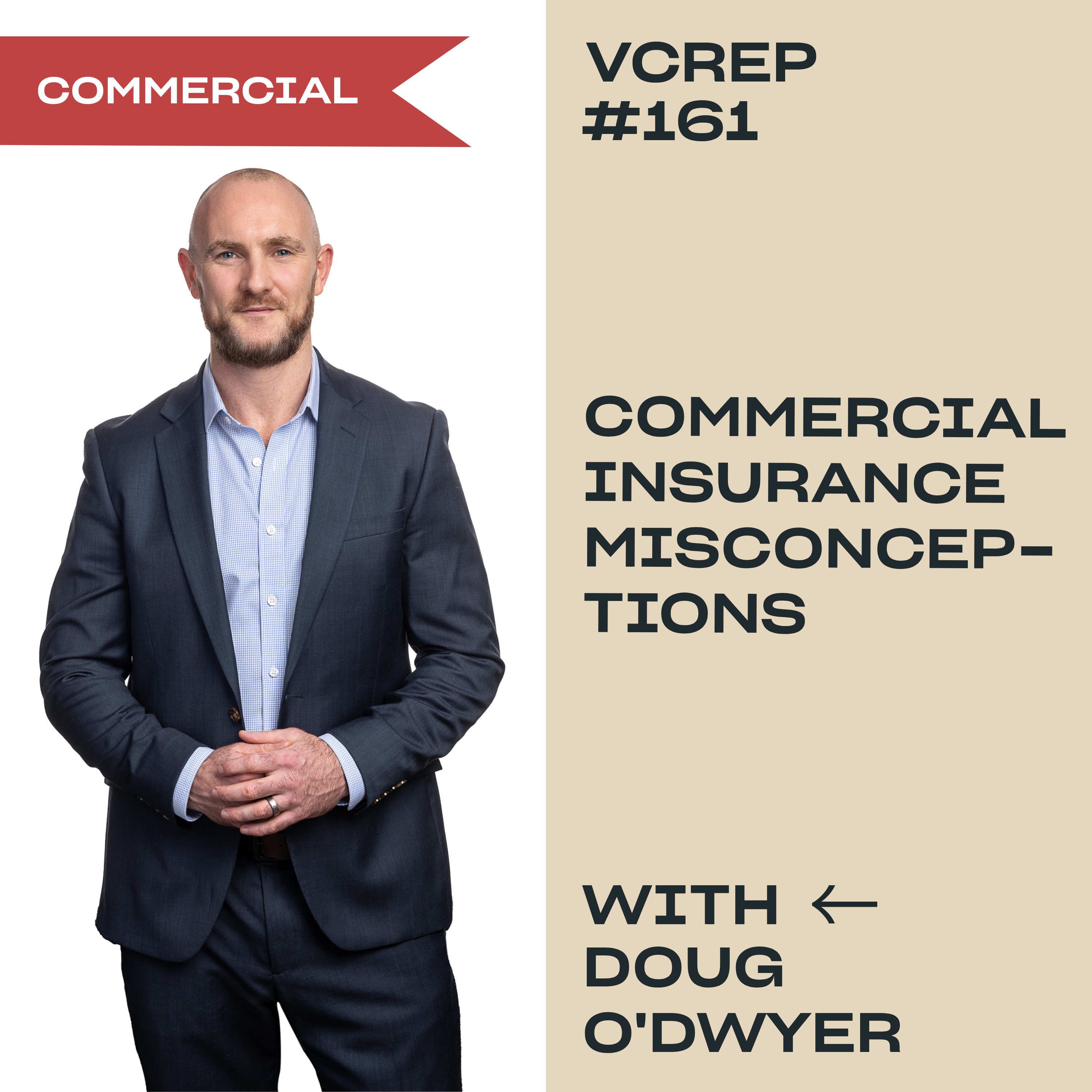Episode 311 – February 25, 2022
Listen On: Apple Podcasts | Spotify | Google Podcasts | YouTube
Many put the mortgage approval process in the same category as a CRA audit or maybe a root canal. But is real estate financing always that painful? Not necessarily in the world of commercial real estate. This week Impact Commercial’s Managing Partner, Alan Haigh, sits down with Adam & Matt to chart the many differences between commercial and residential real estate financing.
Is it easier to get a commercial real estate loan than a residential mortgage? What are the main factors when a lender assesses a deal? And how can you take advantage of the different financing criteria to grow your investment portfolio? This episode lays bare commercial real estate lending, but Alan is also an avid investor himself and spells out where the opportunities are & where the market is headed in 2022. Level up!
Listen to Episode
Guest Information

Alan Haigh
Alan Haigh is the Managing Partner and Co-Founder of Impact Recruitment.
Alan’s mantra, “Say what you mean, mean what you say,” is the backbone to the fundamental values and core beliefs of Impact Commercial and underpins his solid work ethic as managing partner.
With a focus on building strong client relationships, as well as charting our vision and managing the growing operational needs of a fast evolving business, Alan draws on his deep-rooted industry experience that spans 20 years, working with great clients, co-workers, and funding partners.
With an unwavering commitment, Alan works for each client as diligently and effectively as possible — both to help grow strong vibrant businesses and weather market downturns. His ability to procure innovative and sustainable solutions tailored to the financial needs of our clients sets the bar for the company.
Episode Summary
Who is Alan Haigh?
I started my career at Canada Trust in the mid-90s and worked my way up through the banking and credit system. I’ve worked with some great people. I am now pursuing my passion, which is commercial real estate, with Impact Commercial Group.
I’m a husband to one and father to three young daughters. I’m blessed to have such a great family around me.
Impact Commercial Group is almost seven years old. We’re relatively new but our combined experience is probably over 100 years.
What got you into commercial real estate?
We’re all a product of the environment that we’re in. When I was a commercial lender, I was exposed to a lot of clients who had a contagious passion for commercial real estate. In seeing their success, it really helped the stars align for me. I was part of a team that started to do things which grew the passion inside of me. I wouldn’t want to be anywhere else other than real estate.
What is the difference between residential and commercial real estate financing?
The main difference between residential and commercial real estate is that you don’t sleep in the building. Sure, there’s multi-family, but you’re not buying your own personal home. There are lower rates in residential real estate because lenders believe there are lower risks. It’s usually about a 1% difference in interest rates for residential and commercial lending.
There are different specialists when it comes to lending. There are different processes when it comes to residential vs commercial and you follow those processes. But the fundamentals are the same. If you can accept that the process is different and move forward, you’ll be just fine.
In residential real estate lending, it’s all about the borrower and their personal income. How is commercial real estate lending different?
When you’re buying your own home, your personal income determines how much of a mortgage you can afford. On the commercial side, we’re looking at the property’s income, not your personal income.
The property’s income is defined by the leases you have. If you have a commercial retail unit and a lease with Starbucks, that will outline the monthly payments. So it’s a slightly different viewpoint from residential real estate.
What are the down payment requirements in commercial real estate?
The uncertainty for most first time commercial real estate buyers is around the down payment. That’s where we come in and help them walk through it. The down payment has to be the difference between the purchase price and your monthly tenant payments. You can source your down payment through multiple different avenues: savings, gifts from parents, equity takeout from personal property, etc.
While commercial lending isn’t based on personal income, do you still have to be in good financial shape to qualify for a commercial real estate loan?
Can your personal finances impact your ability to qualify for commercial lending? Absolutely. If you want a $10 million mortgage, having a $1 million net worth will be an issue. But if you’re looking at something reasonable and can support the payments, you’ll find very little hesitation from lenders. If you have a good property with good tenants who can service the debt and you’re in a good financial position, you won’t have a problem.
Your credit bureau score is actually more important. Something as small as a parking ticket or disagreement with Telus can impact your credit bureau score. So you want to make sure your score is healthy so a lender can easily check that box.
What is the due diligence process with commercial real estate?
It’s important to remember that nothing is scarier or harder with commercial real estate – it’s just different than the residential real estate process. On the commercial side, most lenders require an appraisal. That can be 50-100 pages and can take three weeks to get. With residential, you often don’t need an appraisal or, if you do, it’s eight pages long and only takes four days. So consultant reports can take longer with commercial real estate.
You may also need an environmental assessment report. That can take 1-2 weeks for a bare bones report. Lenders will look for these reports, along with the leasing information.
How long are subject removal periods in commercial real estate?
Subject removal periods are usually 30-45 days in commercial real estate. COVID has made things take longer to process. With residential, there are fewer checks you have to do and things move faster, so the subject removal period is shorter.
What are the costs for due diligence in commercial real estate?
In general, an environmental report will cost $2000-3000 and an appraisal will cost $2500-4000. If your property is larger or has more environmental concerns, these reports may be more in-depth and more expensive.
You don’t want to buy a commercial property under your personal name as it means more liability, so we recommend setting up a holding company. That’s not hard to do and can cost $1000-2500. Many realtors will have a due diligence package on offer.
So let’s call it $10,000 of due diligence costs for most commercial purchases. But I don’t want buyers to feel like they are alone in this process. We work with just as many first time buyers as we do seasoned purchasers. We will model out all of these costs so there are no surprises.
Keep your finger on the pulse of Vancouver’s real estate market with our Live Wire email newsletter.
How has commercial real estate in BC fared during COVID?
In general, the commercial real estate market has performed just as well as the residential real estate market during these last few years of COVID. There are some pockets that haven’t done as well – like the downtown office market or hospitality – but industrial, land and multi-family have really exploded.
We’re seeing continued appreciation and a lot of Canadian money wanting to participate. Our biggest issue is lack of supply, just like in the residential market. That means prices are going up, regardless of what interest rates are doing.
We’ve seen rapid price appreciation in recent years. I had one client buy something for $1 million and a year and a half later, sold it for $2.5 million. We’re seeing things getting bid up quite substantially. I don’t foresee prices going down at all; it’s a very robust market.
What surprised you about the commercial real estate market during COVID?
The biggest surprise was that COVID hasn’t had a big effect on most commercial assets. Big development and construction are still ongoing. Outside of hospitality and hotels that were hit hard, most other asset classes have not seen a negative impact. The demand has only increased during COVID.
Where are commercial real estate clients investing in BC?
The high prices for real estate in the City of Vancouver mean it’s dominated by the big players. The average investor or first time buyer can’t purchase there. So we’re seeing fantastic commercial real estate opportunities in markets like Penticton, Kelowna, Vernon, Kamloops, Nanaimo, Victoria and Langford. The lease rates support nice financing and that’s where people are going. People are starting to get into these secondary markets.
Population growth is another factor. These secondary markets have really grown. People who can’t afford to live in Vancouver move to Abbotsford; people who can’t afford Abbotsford are moving to Penticton. There’s a ripple effect. If you have more people in an area, you’ll see commercial values appreciate. That’s where the opportunities are found.
How does pricing work in commercial real estate?
Pricing and value in commercial real estate is not an easy concept to explain but I’ll do my best. Capitalization rates are a ratio between the income of the property and the value of the property.
If we have a 5% cap rate and the property is worth $1 million, we know that property generates $50,000 in income. If during a lease renewal the income is increased to $90,000, the cap rate of 5% stays the same but the property value goes up by $500,000-600,000.
So the income the property generates is critically important. The value of a commercial property is related to the income generated on the property, not the comparables, like it is in residential real estate.
How are rents different in residential real estate and commercial real estate?
Rental rates are a key difference between the residential and commercial real estate markets. The BC government sets terms for how much you can increase residential rent each year. But in commercial real estate, we have a triple net lease. During renewal time, you can raise rental rates to where the market is.
Why have commercial real estate prices increased lately?
We have seen an increase in lease rates almost across the board, outside of some retail assets that were hit harder. There’s so much liquidity out there and demand for commercial assets.
We have seen cap rate compression. In the past, people wanted 5% cap rates. But because there’s so much demand, people are willing to pay more and accept a 4.25% cap rate. When you compress the cap rates, the value of the property goes up.
It all comes down to supply and demand. If there’s a ton of demand on a few pieces of property, you’ll see an increase in price.
Keep your finger on the pulse of Vancouver’s real estate market with our Live Wire email newsletter.
What mistakes do first time buyers make in commercial real estate?
The first big mistake first time commercial real estate buyers make is thinking prices are going to drop. And you see this on the residential side as well. People say, “The market is inflated. I’m just going to hold off.” So they wait and in a few years, they realize that property they passed on has gone up substantially. So the big mistake first time buyers make is not understanding these assets are in incredibly high demand.
You need to get in now and not wait. If you don’t jump into the market now, it’s only going to be harder to get in. Reach out to the experts and get their advice on commercial investing. Get comfortable with the process and don’t wait.
The second big mistake I see is first time buyers who are surprised by the higher costs in commercial real estate and so try to take on more by themselves. This often leads to disappointment instead of success. You need to build your team. Use the expertise of a commercial mortgage broker, a lawyer who specializes in real estate, etc.
What is a good deal in commercial real estate?
A good deal is whatever the purchaser believes is a good deal. We have many different types of clients who like many different types of deals. It’s all in the eye of the beholder. You can only do so much with what you’ve got in your back pocket. It’s hard to define “good deal” for everyone.
We saw some unbelievable deals during the height of COVID. You have to look a bit harder for those deals now, but we’re still seeing some attractive opportunities come through. The most success happens when you do your research and you buy where you think density and appreciation will be.
What are the advantages of investing in commercial real estate over residential real estate?
The main advantage of investing in commercial real estate over investing in residential real estate is the commercial tenancy agreements, with established terms and triple net leases. In commercial, the tenant is responsible for improvements to the interior of the property, they pay property taxes and strata fees, they take care of maintenance, etc.
With the Residential Tenancy Act, you can only increase residential rental rates by 1.4% this year. But what happens if your insurance goes up 10% or 30%? You can’t get that back from your tenants. Rent control on the residential side hurts the investment returns. It’s more free-flowing on the commercial side.
Where are interest rates going in 2022? How do interest rates impact commercial real estate?
It’s so hard to predict where interest rates are going in 2022. We have seen rates on the commercial side go from the high 2s to the high 3s in the last 12 months. It is affecting how much you can get with a mortgage.
I think we have another 0.5% in the five year fixed mortgage rate before it has an effect on demand. With higher rates, you’ll see demand come off and things start cooling.
What are the best commercial real estate asset classes in 2022?
I’m excited about all of the commercial real estate asset classes. I think we’re going to get past lockdowns in 2022 and see a return to socialization. My gut tells me that hospitality will start coming back. The return to the office is happening in 2022.
I keep hearing reports about our immigration wave coming back. Those people need houses, so multi-family is going to continue its roaring pace. Industrial still has such a short supply, so that will keep going up. Stacked development seems to be the only option. It’s not as easy to build vertically in commercial as it is in residential.
There’s no shortage of money so it will continue to be a robust commercial real estate market in 2022. That money may be held in fewer hands than it has been in the past, which is a separate discussion, but those individuals and institutions with money have a lot to spend.
What advice do you have for people interested in commercial real estate investing?
If you are interested in commercial real estate investing, do the research. Rub your pennies together and build your team. Figure out what the next steps are to get a property under contract and move forward. There are only so many places you can build in the Lower Mainland due to natural barriers, so you want to get in sooner rather than later. I’m extremely bullish on our commercial real estate market for the next 10-20 years.
Chat with the experts in the industry and get comfortable with the process. Learn what the pitfalls are and how to avoid them. Time is of the essence, so if you’re interested, you have to take that leap of faith and start today.
Keep your finger on the pulse of Vancouver’s real estate market with our Live Wire email newsletter.
Episode Host

Adam Scalena
Adam is a full-service realtor, specializing in Vancouver’s best areas. His systematic approach to real estate and dedication to his clients has consistently placed him within the top 10% of realtors operating within Greater Vancouver.

Matt Scalena
Matt is real estate obsessed and considers himself a lifelong student of the Vancouver real estate market. As a co-manager of the Scalena Real Estate team, Matt prides himself on expertly advising buyers and sellers on all aspects of the fast-paced, dynamic Vancouver real estate market. He is present at every stage of the process, from that first phone call or email right through to when keys are exchanged between sellers and buyers.







